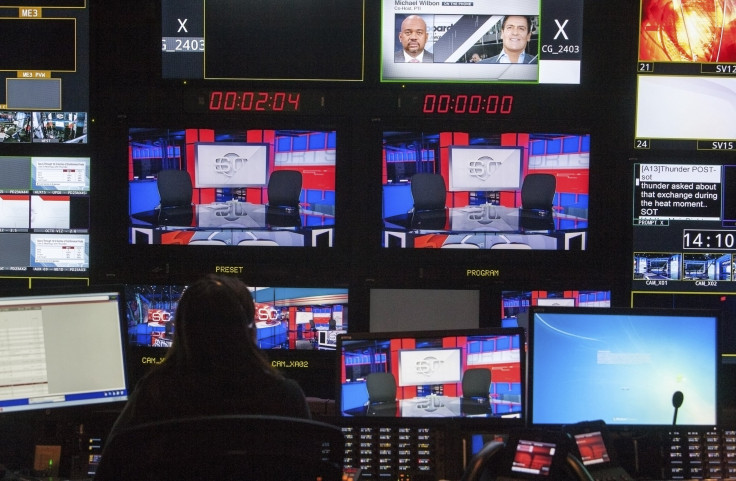US-Belgium Marks Highest ESPN Overnight Rating For World Cup

Media pundits wondering when Americans will finally start caring about soccer need look no further than the record audience that tuned in to watch Belgium eliminate the U.S. from contention Tuesday.
ESPN announced that its television coverage peaked with a 14.1 rating from 5:45 to 6 p.m. EDT (the beginning of overtime) and its WatchESPN online coverage peaked with 1.5 million concurrent viewers. The 9.6 overnight rating was good enough to mark the U.S.-Belgium game as the highest overnight rating for a World Cup match on ESPN or ESPN2, according to Nielsen numbers provided by the network, which is largely owned by the Walt Disney Co. (NYSE:DIS).
The game also attracted an audience 5 percent larger than the 11,093,000 that watched the U.S. kick off against Ghana, ESPN said.
The top 10 metered markets were New York (15.0), Hartford/New Haven, Connecticut, (13.2), Washington, D.C., (12.8), Richmond, Virginia, (12.3), Boston (12.2), West Palm Beach, Florida, (12.0), Baltimore (11.4), Cincinnati (11.4), San Diego (11.0), Columbus, Ohio, (10.8), Norfolk, Virginia, (10.8) and Orlando, Florida, (10.8).
Univision announced Wednesday that 5.1 million TV viewers watched the US-Belgium game Tuesday, with another 1.8 streaming online. Univision previously announced that an average of 238,000 people streamed each game, though that number has climbed as the matches have become more important.
Previous ESPN numbers for the 2014 tournament were 6.3 for Germany, 9.1 for Portugal, and 7.0 for Ghana. When including numbers for ABC, the metered market rating for Tuesday’s match against Belgium ranks only behind the 1994 final between the U.S. and Brazil in the 16th round of the World Cup.
This story will be updated with exact numbers when they become available. Univision (owned by privately held Univision Communications) had yet to disclose the size of its audience by press time, although it was immediately clear that Univision was successful in areas of the U.S. with large Spanish-speaking populations.
Univision's top-rated TV markets for US-Belgium: 1. Miami-Ft. Lauderdale 2. L.A. 3. Houston 4. NYC 5. Dallas
- Richard Deitsch (@richarddeitsch) July 2, 2014 USA-Belgium drew huge ratings in Miami/Ft.Lauderdale: Univision: 12.1 ESPN: 11.2. Combined 23.3 is about the same as Heat-Pacers Conf Finals
— Adam Kuperstein (@AKuperstein) July 2, 2014© Copyright IBTimes 2024. All rights reserved.











